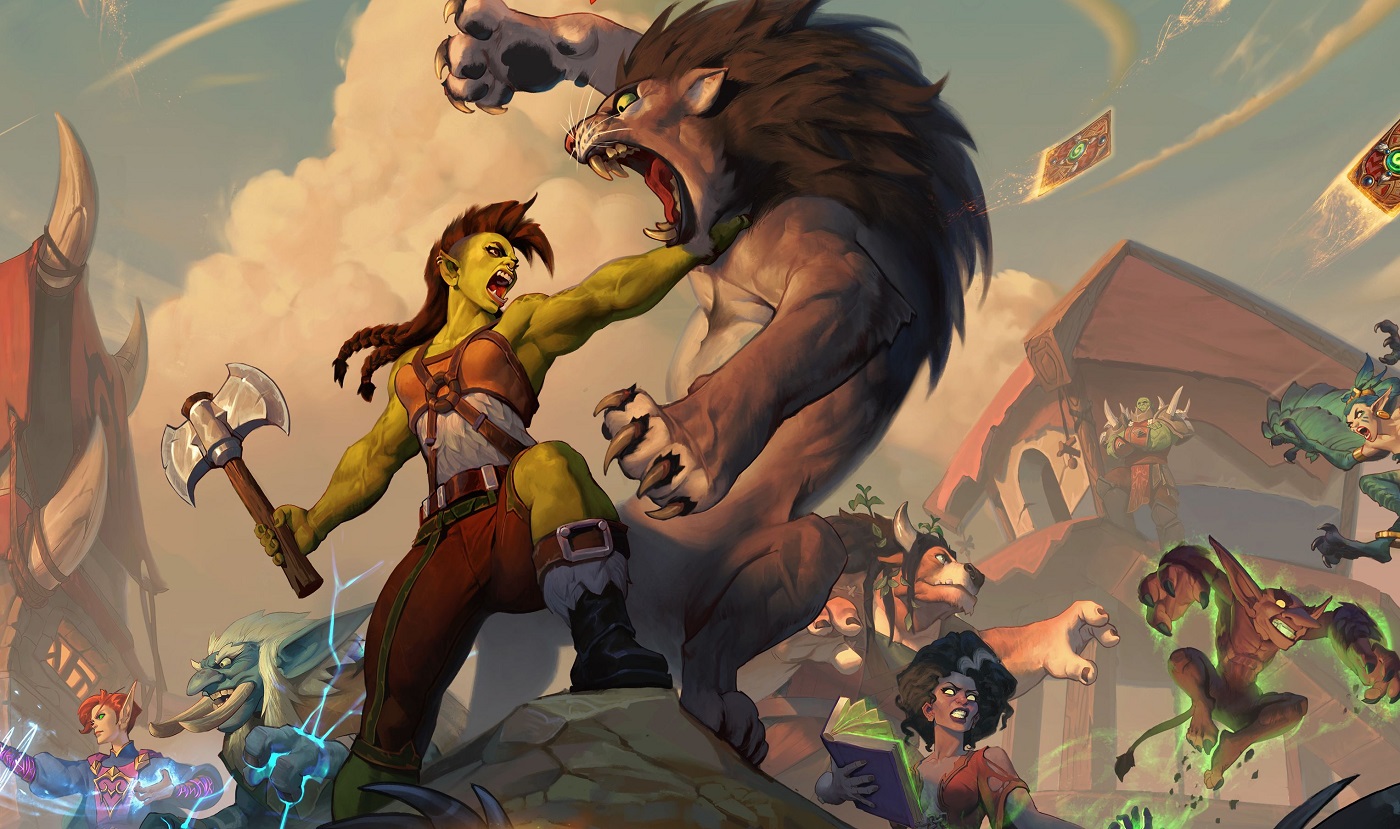It’s Roll the Dice time again, folks…
Blizzard Entertainment and beleaguered “loot box” mechanics are back in the legal crosshairs once again after an Arizona resident filed a proposed class-action lawsuit against the studio over its popular digital card-battler Hearthstone, currently played by millions on PC and mobile platforms.
As reported by Polygon, Nathan Harris filed the suit with Orange County’s California State Superior Court on behalf of his daughter, a fan of the fantasy trading card game. Harris proposed suit concerns the randomized nature of Hearthstone‘s purchasable card packs, which they believe “deceive” children and younger players with promises of rare cards without fully disclosing the odds.
Between 2019 and 2020, It is alleged that Harris’ daughter has spent in the region of $300 USD on Heartstone card packs via her father’s linked bank cards. According to Harris and his lawyers, the daughter “almost never received any valuable cards” and “did not understand” that she could not receive a refund post-purchase. Harris is suggesting that the class-action suit be opened to the parents of any younger players who have purchased Hearthstone card packs in the past, which obviously equates to thousands upon thousands of players.

Blizzard Entertainment has asked the court to move the case within the boundaries of its own jurisdiction: the United States District Court in the Central District of California. For this to happen, the studio is required to prove that any supposed damages payout, (if the lawsuit was a success), would surpass $5 million USD. Given Hearthstone‘s popularity since its 2014 launch, this seems incredibly likely.
It should be noted that Blizzard has recently won a similar lawsuit over loot box purchases within arena shooter Overwatch. As reported by Bloomberg, the case was pushed to arbitration after Blizzard argued that players agree to a full understanding of in-game purchase terms & conditions when they sign-up.
Ultimately, this is yet another crapshoot in the wild west of modern gaming, where a barely regulated mechanic — one that has already lasted over a decade without true, global legislation — leads to a class-action suit that can fall anywhere along the spectrum of success or failure for either party.
While the digital revolution has brought fantastic progression in technology, online retail, community building, and other gaming-related endeavors, it remains oddly lacking in ink — an industry awash with complaints about monopolies, store policies, refunds, work environments, and in-game purchases that seem to have no global lawful definitions with which to fall upon.







